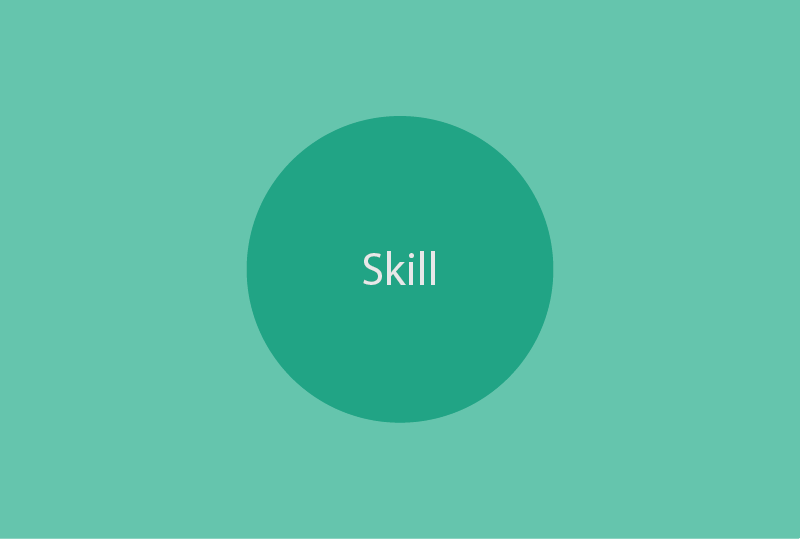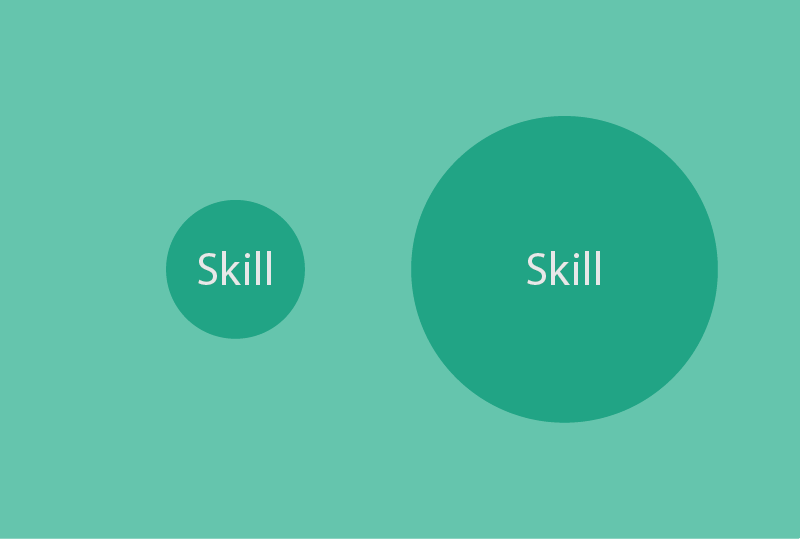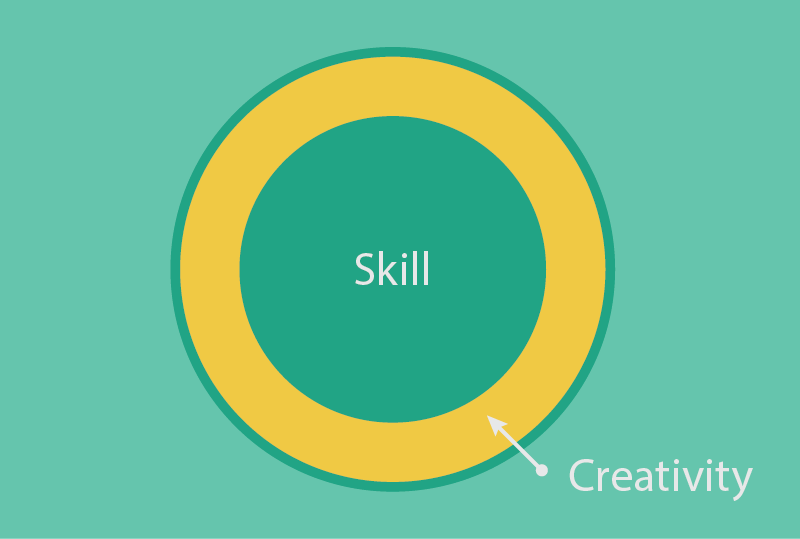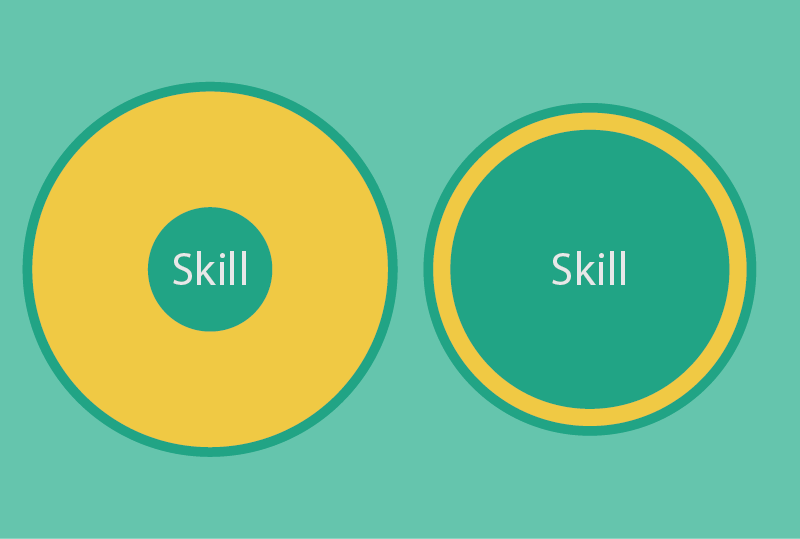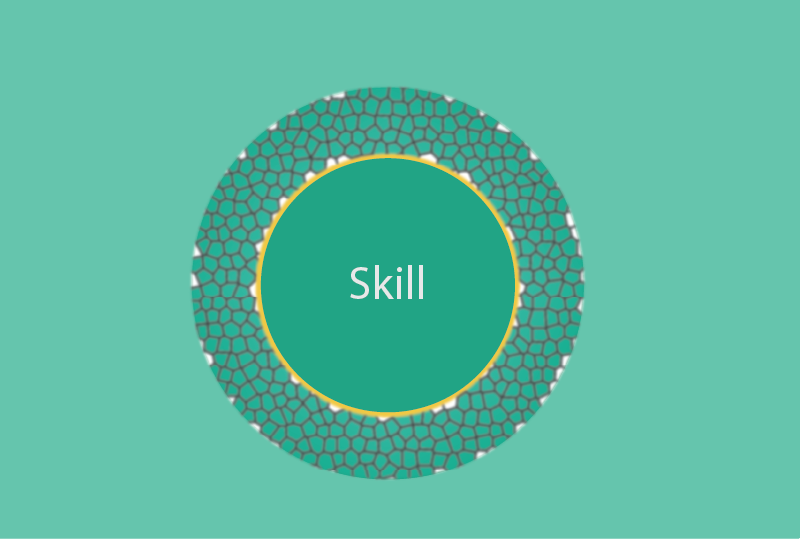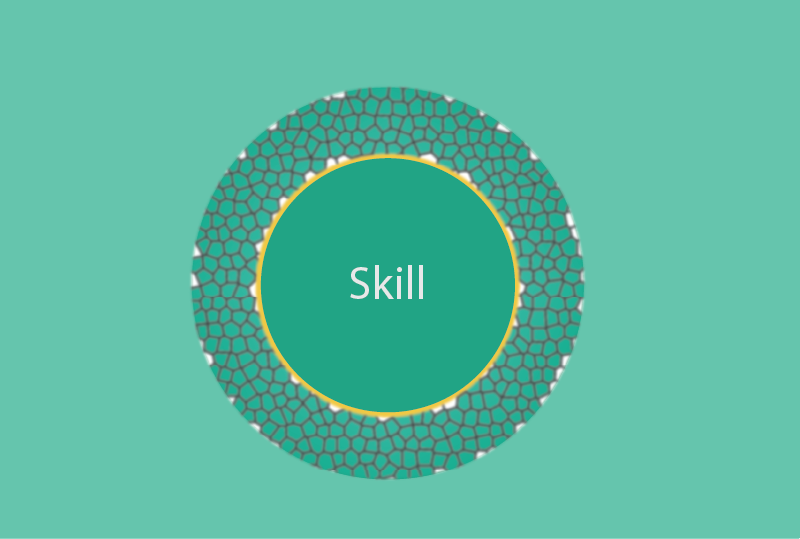Most organizations don't understand creativity. That's kind of by nature.
Here's a way of thinking about how creativity works, what to seek, and what to avoid
...(thread)
Here's a way of thinking about how creativity works, what to seek, and what to avoid
...(thread)
Let's start with the concept of skill. Skills are things we know. They are concrete, unlike creativity which is abstract.
Skill can be quantified. We won't get into how to do that now, but let's say that a person's skillset, large or small, creates a skill footprint.
Skill can be quantified. We won't get into how to do that now, but let's say that a person's skillset, large or small, creates a skill footprint.
Different people have different sizes and orientations of their skill footprint. Within one craft, some people have more developed skillsets and a larger skill footprint.
This means they are "better' at that craft.
But this isn't where their capabilities stop.
This means they are "better' at that craft.
But this isn't where their capabilities stop.
Creativity is a layer around skill. It has the ability to extend the boundary of a person's skill.
If you know a little guitar, creativity allows you to maximize that skill and use what you know to make things. The larger your creativity, the more you can do with your skills.
If you know a little guitar, creativity allows you to maximize that skill and use what you know to make things. The larger your creativity, the more you can do with your skills.
...and we certainly see this come up in music when a person with low skill and high creativity can meet or exceed a person with high skill and lower creativity.
This is true in every field, not just with guitar. A person's creativity can help them do incredible things.
This is true in every field, not just with guitar. A person's creativity can help them do incredible things.
And the trouble here is that we can easily measure that a person's skill is inferior, but creativity is really hard to measure (other than psychologically).
We are left thinking that the extra-creative person is lucky or that there is some other rational explanation.
We are left thinking that the extra-creative person is lucky or that there is some other rational explanation.
This is the perilous trap that companies fall into as they misunderstand creativity. They want things that can be proven, understood, and measured, but that is fundamentally not how creativity works.
And we see this yield a truly terrible result: creativity inversion...
And we see this yield a truly terrible result: creativity inversion...
Because, you see, creativity is not only an additive trait. Creativity can be negative, as in certain people can have negative or subtractive creativity.
A person or team who strongly dislikes creative thinking can subtract and disintegrate skill.
A person or team who strongly dislikes creative thinking can subtract and disintegrate skill.
We see this all the time with incredibly well-trained and well-educated people who just don't allow themselves to take creative leaps. The highly-trained musician who just can't make any interesting music. The highly-capable leader who won't adopt or create a new process.
Negative creativity permeates and destroys businesses because it's so hard to prove creative things. Negatively creative people are exceptionally dominant in conversations, challenging people to prove the effectiveness and ROI of creativity, ultimately slaying creative thinking.
When negative creativity is allowed or encouraged in a business, it infuses itself into the culture. Looking at IBM, Microsoft before Satya, and maybe your own company today, you see immense bodies of skill that are "trimmed back" by negative creativity, rather than amplified.
Subtractive creativity makes your company less skilled than it actually is. It makes the total less than the sum of its parts.
You can have all of the right experts in the room, but they end up creating the output of amateurs.
You can have all of the right experts in the room, but they end up creating the output of amateurs.
As you run yourself, your team, and your business, it's imperative to create space for creativity so it can amplify rather than reduce the skill of your business.
On the surface, this requires cadences, culture, and experimentation.
Beneath the surface, it's all about people.
On the surface, this requires cadences, culture, and experimentation.
Beneath the surface, it's all about people.
Creativity is a psychological motivation. Creative people have histories of being creative all through their life, and I don't mean they're artists, I mean they solve problems and think about things in novel and innovative ways while others prefer proven and traditional ways.
Not everyone has to (or should be) creative. But you can't do anything if creative people are rejected, blocked, or habitually leave your company out of frustration.
You can do it. But it requires trust instead of proof.
Trust a few creative people and you're on the path.
You can do it. But it requires trust instead of proof.
Trust a few creative people and you're on the path.

 Read on Twitter
Read on Twitter
